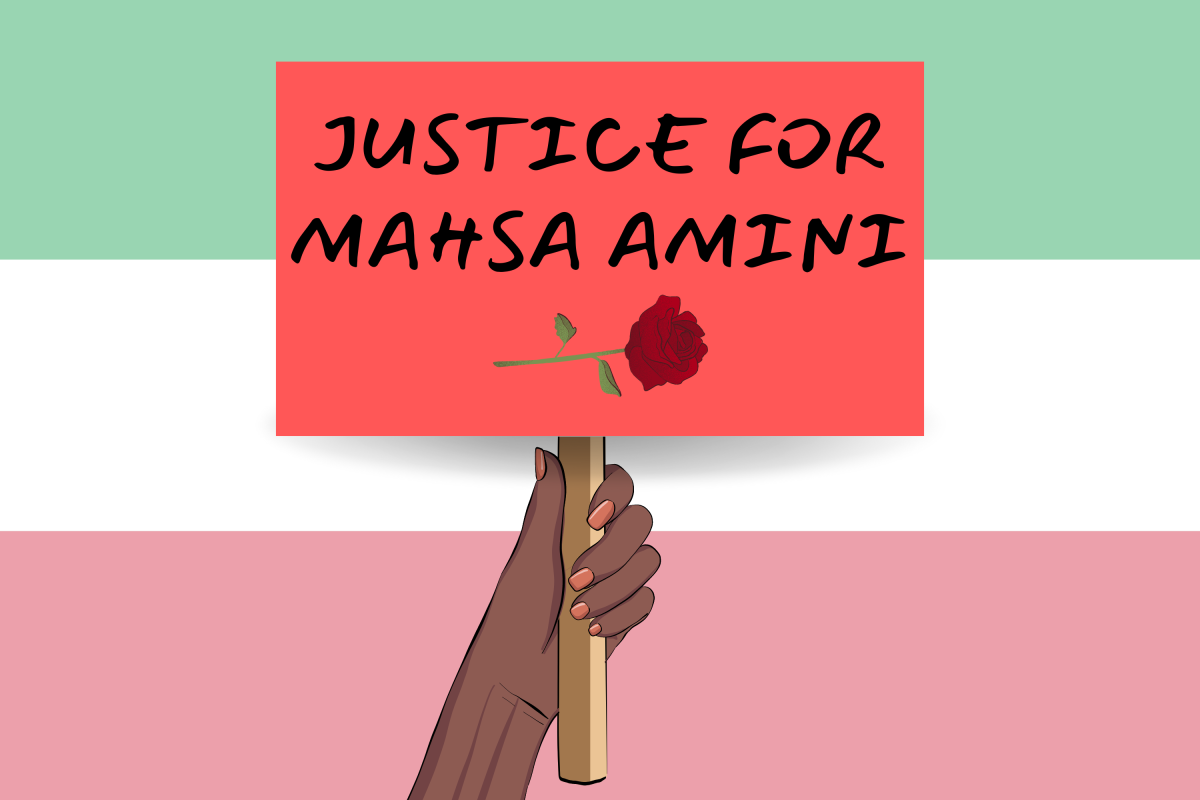A symbol of women’s power and a brewing revolutionary
When 22 year-old Mahsa Amini stepped off a train, Sept. 16, at a station in Tehran, Iran as she and her brother headed to visit her uncle, she was immediately taken into custody by Iran’s morality police. The next time her family saw her, she was dead in a hospital bed. Iranian police claim that she collapsed unexpectedly due to heart failure. There is no known video footage to show that Amini’s death was the result of police actions, as many media reports claim. Women that were also arrested for improper dress maintain that Amini was violently beaten by police in the van they were detained in together, after which they were driven to the hospital, where she was pronounced dead. When interviewed by Iranian journalist Niloofar Hamedi, Mahsa Amini’s father disputed the heart failure claims, saying his daughter had no prior health conditions. News of Amini’s death spread, sparking anger and nationwide protests over the treatment of women. Many media accounts painted Mahsa Amini as intentionally setting out to violate dress codes for women. This in fact is not true according to her father and other family members who spoke about her.
In spotlighting and mourning Amini, I feel it must be acknowledged that this young woman was known for being quiet, rule-following and respectful. When I first saw these news stories, I automatically assumed Amini was an activist, when this was not the case.
In fact, media reports reveal that she kept her head down and tried her best to follow the morality rules to live a normal life as a woman in Iran. This woman did not want to die, did not intend to put her life on the line and showed no alleged “disrespect” to the clothing policies of Iran, yet still died in police custody. Media reports also quote Amini’s family as saying that she was not aware that the way she was wearing her hijab was deemed incorrect. She apparently begged the police for mercy, and tried to explain she did not know of the issue with her hijab and meant no harm. She still died because of it.
I feel that the anger the women of Iran feel is beyond justified, because one of their own died for what many Iranian women claim is a senseless reason. I believe the most devastating, as well as most anger-inducing, part of Amini’s story is how she lived her entire life following the morality rules and keeping her head down. Fatemeh Shams, a professor of Persian literature at the University of Pennsylvania, said, “If the government lets the streets be filled by the protestors, there is a potential for another revolution, because what we have right now is a revolutionary movement.” The reason Amini’s story, specifically, caused such anger in Iran and such fervent protests is, in my mind, simple and almost paradoxical. For her whole life she was the ‘perfect’ Iranian woman, yet she was still punished.














































